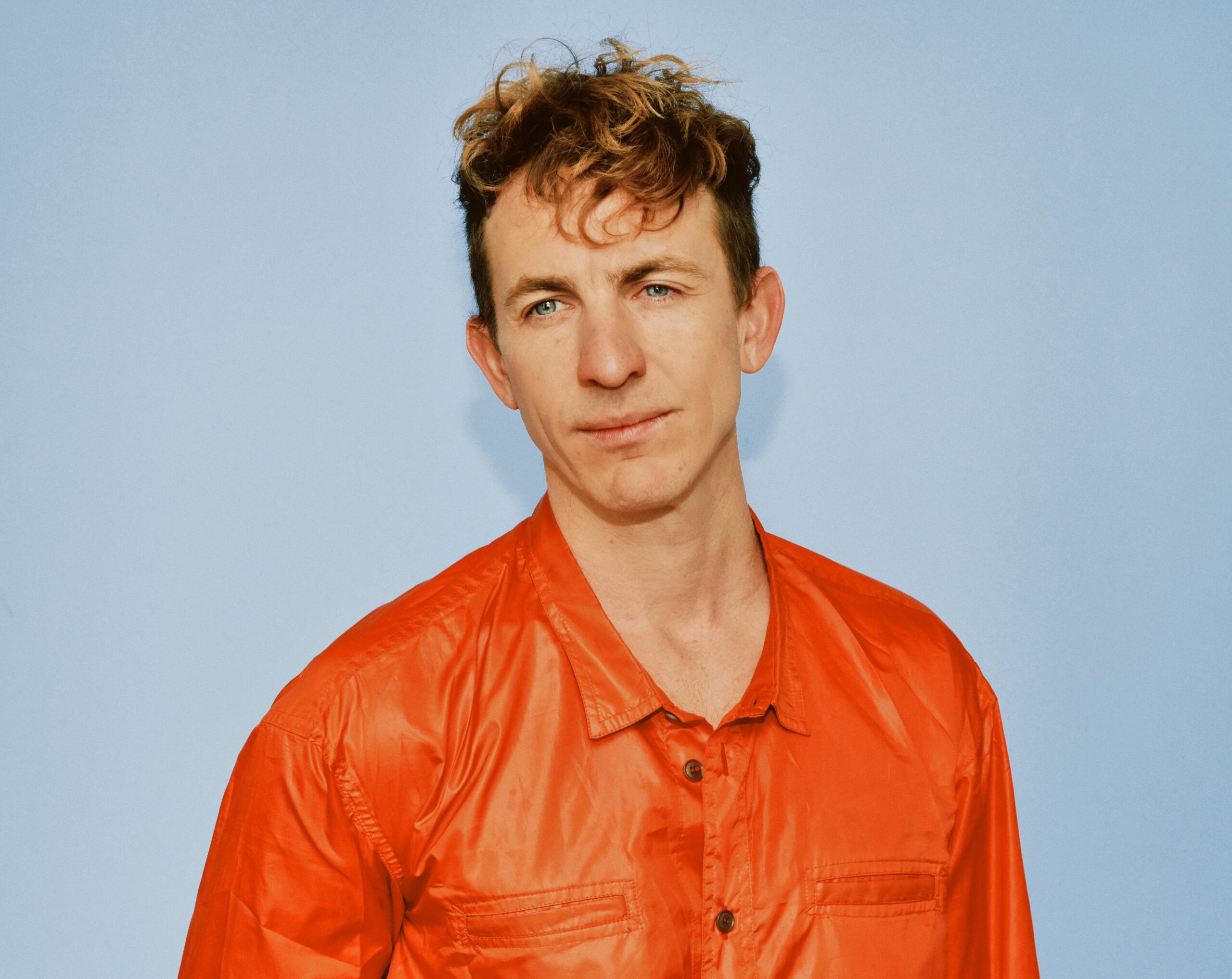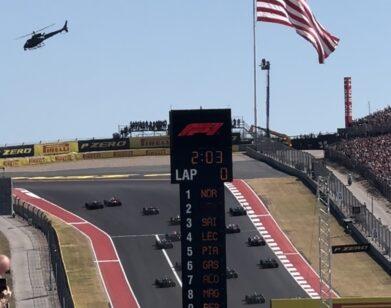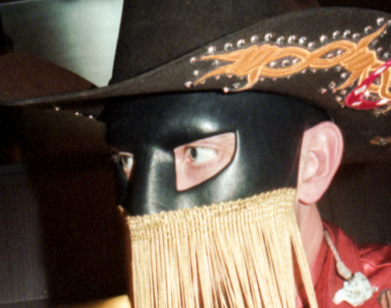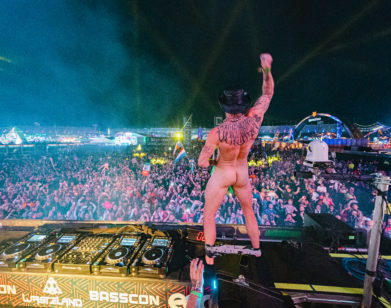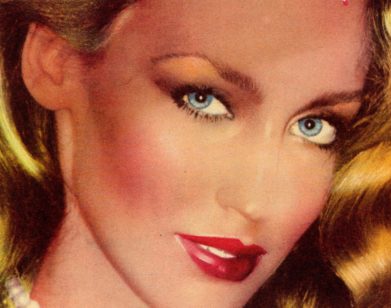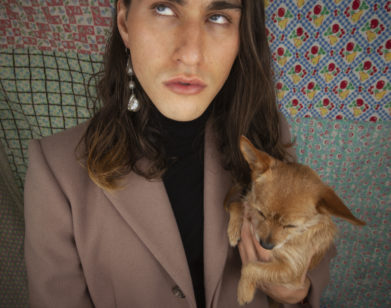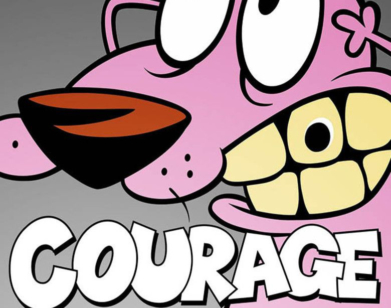SOLO
Big Thief’s Buck Meek Tells Us How to Write a Love Song
When there’s so much to say, so many moments of intrigue and profundity happening to us all the time, what do we end up choosing to talk about? How do we condense life’s most vivid and ephemeral experiences into the economy of words that make up a song? To Buck Meek, the answer is simple: “I want it to create an emotion,” he says. “I want to remove all of the fluff.” Love, isolation, and the nature of storytelling; these are some of the bigger, more philosophical themes that populate Meek’s—most famously known as guitarist and co-founder of Big Thief—third solo studio album, Haunted Mountain. The record, a 42-minute collection of throaty crooning and epic, uncanny ballads, ultimately leaves the listener one step closer to achieving Meek’s ultimate goal: to make sense of the rawness, and total incomprehensibility, of the human experience. Before his acoustic performance at the intimate Spacebomb Studio in Richmond, VA, which kicks off a tour throughout the U.S. and Canada, Interview sat down with Meek to discuss the making of his album, his philosophy on songwriting, and the process of making up meaningful words.
———
JACKSON WALD: What do you gain from performing in a small, intimate venue versus a larger one?
BUCK MEEK: Playing small shows is much more vulnerable for me than playing big shows. It feels like you’re in the room with the songs in their essential form, as they were written. Especially tonight, when I’ll just be playing acoustic guitar, it helps me as a performer return to where I wrote the song, by myself in a room. Just hearing my voice bounce off the wall with an acoustic guitar helps me reconnect with the source of the song.
WALD: What do you rediscover about your music when you play live? Do the songs feel different from how you felt when you wrote them?
MEEK: Every day I sit down with the songs, and to some degree, they feel foreign again. It’s definitely a practice to put myself in the story, to really center myself, whether it’s a character-based song or something really confessional, and to return to the place I was when I wrote it. But often, the meaning of a song I wrote will evolve with my own experience. And I’ll sometimes rediscover things in my own songs that I didn’t see before.
WALD: I have to imagine when you release an album, your ownership of it also dissipates. So many people feel so many different things towards it.
MEEK: The thing I’m reaching for when I sit down to write a song is to step out of the way and let my subconscious step forward. To try to unblock my own fear, my own ideas even, and just let something move through me. Often, my songs start from this abstract place of sounds and mumbling and just kind of nonsense, which then forms into a narrative. But there is something about then performing the songs for people who have had some time to live with them. Maybe they know the words. Maybe they’re singing along with me in the room. Even if I wrote it, if I’m singing it with a group of people who I don’t know, and we’re kind of unified around this narrative, it feels like something beyond me.
WALD: Do you imagine yourself in a certain place when you listen to or write music?
MEEK: Often I’ll put myself with someone I care about or respect when writing a song in my head. I’ve been going to this festival down in Texas called the Kerrville Folk Festival, which is this gathering of songwriters from all over the country on this big ranch out in Texas, every summer for three weeks. And it’s just a bunch of campfires and people sharing their songs until sunrise every night. And that’s where I first started writing songs and where I was inspired to write songs as a kid. And so every time I write a song, I’m singing it for all of my friends down there at Kerrville. And I sing them for my mom or my dad or my brother, or my band. Just imagining how the song might make them feel. That’s really my North Star.
WALD: Kerrville sounds like Heaven.
MEEK: Oh yeah. You just wake up, get some breakfast tacos, go to the river, and sleep on the banks of the Medina River under the Cypress trees. And then go back to the ranch at sunset and sing songs with your friends until sunrise.
WALD: What’s the most emblematic moment of that festival for you throughout your time there?
MEEK: The first moment that comes to mind was my first time at the Kerrville Folk Festival. A friend brought me at 15 years old, and I had no idea what I was getting into. And at the time, I was playing a lot of Manouche jazz. And I was all alone. I had set up my little tent in the meadow. I didn’t know anybody except my bud, but he was off. And this older fellow named Oliver Steck rolled up. And he saw my little Django Reinhardt guitar, and said, “Play some Django.” He had two ramen packets in his hands, and he started creating the sound of a snare drum by hitting his ramen packets against each other. And he was just so inclusive and treated me like a peer, and ended up showing me around the ranch and introducing me to some cool folks that day.
WALD: When you’re writing anecdotes in songs about love and intimacy and people, how much of it is derived from personal experience versus something wholly fictional?
MEEK: I think it’s all derived from personal experience. When I was first starting to write songs, I would lean on creating character based narratives. But looking back, really, I was trying to tell my own story. Maybe I was just too afraid to be confessional. Or I didn’t yet understand the power of that. And so I would create characters to tell my own story, or at least the projection of the person I wanted to be, or the person that I admired, or the person I was in love with. And also, I wrote a lot of songs as a younger songwriter about people in my life, and mythologized them to some degree. But the more I’ve written, the more I’ve learned of the endless resource of our own experience, and just our own truth being an undying resource for creativity.
WALD: Do you ever find yourself in conversation and catch yourself synthesizing experience versus just living in it? And having to check yourself and be like, “Oh my God, I’m in storyteller mode?”
MEEK: I don’t think I ever think of that consciously in the moment. I’m sure I do sometimes, but I think on the contrary, I tend to romanticize people and extreme characters. I have a history of friendships and relationships with extreme characters. I’m definitely drawn to them. And in some cases, I’m sincerely convinced that they’re healthy relationships when in fact, they’re not. And I think as I grow older, I’m learning a little bit to temper that. And realizing, “Oh, maybe that’s because, on some subconscious level, I’m inspired by their idiosyncrasies and iconoclasms.”
WALD: How do you know when a song is finished?
MEEK: For the most part, I think I’m a pretty slow writer. I think it’ll usually take me a few months to finish a song. I mean, I just finished a song yesterday that I’ll play tonight. Having a deadline is really important for me. Having the accountability of a show a “song a day project,” or a recording session is critical for me, because otherwise, I’ll just iterate forever. But the funny thing about songs is that they’re never really done. You just call them done; at some point, you have to record them or present them. But it’s a really good question; how do you know when they’re done? It’s such an invisible thing. It’s so hard to say.
WALD: There has to be a point, for anyone creative, where you release your work and just make peace with it. There’s something powerful about that part of the process. Just being like, “I can’t control it anymore.”
MEEK: Exactly. There are endless criteria, and it’s always moving. For me, when I’m willing to sing a song in public is when I could take any random, single line from a song, and it would stand on its own. I want each line to make people feel something. Even if it’s abstract, I want it to create an emotion. I want to remove all of the fluff. I don’t want there to be any unnecessary lines. But I think the bottom line is if it feels honest and if I’m really speaking from the heart. If it doesn’t feel like I’m pretending, and I’m not writing from an unhealthy side of my ego or from fear or vanity or just all the typical things of, “Am I being a good person or not with these lines?”
WALD: To be able to release it on your own terms when you feel like it’s honest and healthy, versus for content and clicks, feels like a dying philosophy today.
MEEK: Yeah, it’s good to remind yourself that, ideally, a song helps me understand something about myself that I didn’t know before I wrote it. I mean, the main reason I write songs is to journal my own experiences and to try to understand my emotions. Because there’s something about music for me that provides context for language that sanctifies it somehow and creates this habitable environment for my emotions. And it helps me externalize something I’m feeling that’s abstract, and that I don’t know how to process.
WALD: I know you use Rhymezone and other dictionaries to make up words in your songs. I was wondering if you could tell me a bit about that process and the etymology of the word “Holyahwylio” from your song Secret Side.
MEEK: Well, that’s just a word I invented for that song. Of course, my love is in the song. I hear her through the door singing invented words. Germaine Dunes is my partner and a great songwriter, and she will sometimes just invent words for her songs, which is really inspiring to me. And so that’s her in the song, inventing a word. It’s a fantasy. But yeah, [Holyahwylio] just felt really good. I think I wrote that word as I begin all songs, which is just creating shapes in my mouth that feel good. Starting with word sounds and following them until they arrange themselves into a shape. And I had to intentionally keep that one abstract and not let it fall into a defined word.
WALD: If you had to come up with a meaning for it, what would it mean?
MEEK: Good question. It’s definitely some form of catharsis. A sacred catharsis.
WALD: Love features so prominently on this album. What are the physical properties or sensations of love for you? Is it an active or passive process?
MEEK: Well, of course, there’s a sense of wonder, obsession, bliss, all that good stuff. But I think the real stuff is in the humility that is required to really sustain love. That turning point in a relationship where you realize you’re your own worst enemy and this person that you’ve, for whatever reasons, put yourself in a room with 24 hours a day, is reflecting those things back at you. And you’re left to make a choice of accepting yourself and trying to work through those things together, or not. That’s the good stuff.
WALD: Love is a delicate and very serious thing. How does one properly transfer that feeling into music while maintaining its integrity and sincerity?
MEEK: Wow, there are so many answers. That’s a really good one. For me, I think a starting point is being as honest as I possibly can with my first thought, while also leaving room for abstraction. Because there’s so much abstraction. It’s so far beyond… Love, whatever the hell that is, is so far beyond language. It’s so far beyond logic. And it definitely pushes us into completely illogical places. And wide open, beautiful places. And we do the craziest things. There’s a reason for that. It’s because love doesn’t line up with normality. And so I think honoring that in the language is important for me, making space for non-sequiturs and creating a synthesis between words that aren’t really supposed to be next to each other. And just seeing the chemical reactions that can happen when you leave space for that, while also being super honest and really naked and vulnerable and human. All that stuff.
WALD: Easy peasy.
MEEK: Yeah, it is easy. It’s really easy to be honest. It’s just scary.

